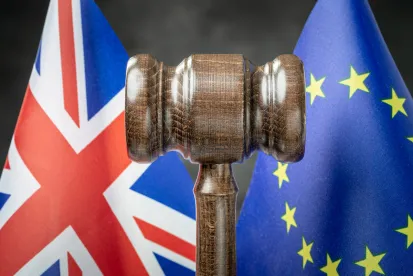On 22 September 2022, the UK Government published the Retained EU Law (Revocation and Reform) Bill 2022. Under the bill, all retained European Union law would be revoked on 31 December 2023 (the sunset date) or at a later date prior to 23 June 2026 (the ten-year anniversary of Brexit) unless specific steps are taken to retain it.
Affected Legislation
The bill would impact approximately 2,500 regulations across twenty-one government departments, including the following key pieces of legislation related to employment law:
-
Working Time Regulations 1998;
-
Agency Workers Regulations 2010;
-
Part-time Workers (Prevention of Less Favourable Treatment) Regulations 2000;
-
Fixed-term Employees (Prevention of Less Favourable Treatment) Regulations 2002; and
-
Transfer of Undertakings (Protection of Employment) Regulations 2006 (TUPE).
The extent of the legislation caught by the bill means that it has the potential to affect most, if not all, businesses in the United Kingdom. The bill gives Parliament wide powers to determine which laws should stay and which laws should go (or, at the very least, be amended).
Although it is likely that most of the current legislation will be restated or amended, rather than revoked, some changes to the employment law of the United Kingdom over the coming years can be expected. Given that the bill proposes to sunset EU-derived subordinate legislation and retained direct EU legislation by 31 December 2023—a date that is fast approaching—Parliament may not have sufficient time for full consideration of and consultation on the legislation affected by the bill. As such, the sunset date may be extended until 23 June 2026.
Considerations for Employers
Given the relatively early stage of the bill—the Public Bill Committee just completed its work on 8 November 2022—the scope of the proposed reforms is not yet clear. However, once new legislation is introduced to remove, replace, or amend EU-derived legislation, employers may want to revisit their policies and provisions that reflect the requirements of the current law, keeping in mind that some provisions may have been included in contracts and that amending employees’ contracts requires consent. Therefore, employers may want to begin considering how to include wording in contracts that will reflect any updates to the law over the coming years.




 />i
/>i
